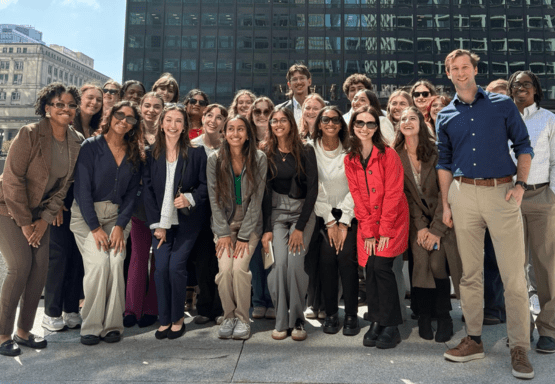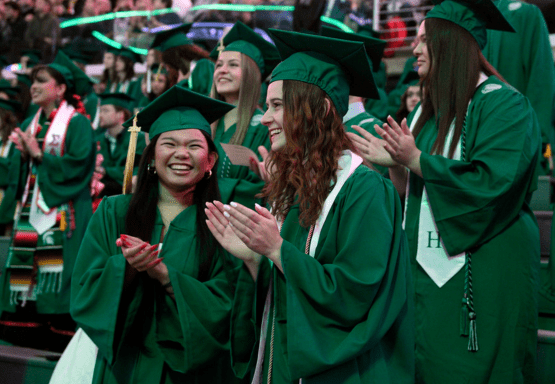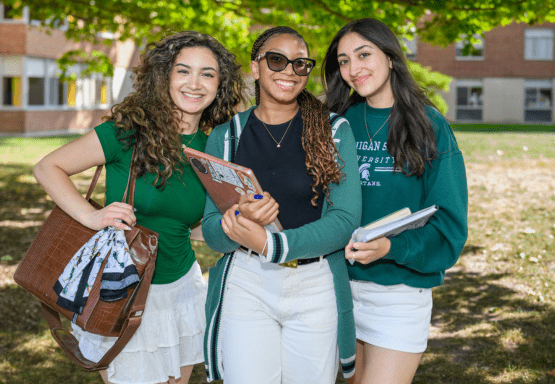Solomon Kronberg graduated in 2022 with a degree in Comparative Cultures and Politics (CCP) from James Madison College. He was a student researcher with the Mekong Culture Well (MCW) project and an alternate finalist in the 2022 Fulbright Research Grant Competition. Kronberg does conservation work at the Superior Watershed Partnership and Land Conservancy while continuing collaboration with MCW on several publications, including a project based on his ethnographic work in Chaing Rai, Thailand, and Michigan’s Upper Peninsula.
I spent my last year as a Madison student in constant motion, careening between finishing my degree with grades and work ethic intact and anxious dreams of the uncertain post-graduation future. Having studied environmental justice in Southeastern Asia with Dr. Amanda Flaim and the Mekong Culture WELL (water, ecology, land and livelihoods) project for several years, I was eager yet surprised when the chance to spend my final fall semester in Northern Thailand’s hill country materialized. Despite the uncertainty of travel amidst a global pandemic, I took the leap.
I left my tiny home airport in the Upper Peninsula early in the morning, arriving in Bangkok after almost a day in the sky. I was lucky to travel with my friend Audrey, another CCP senior whose humor, kindness and brilliance made every adventure more compelling and comfortable.
Our adventures began as soon as we landed. We quickly headed north to join Dr. Apisom Intralawan, an MCW researcher working to defend rural people’s access to culturally and economically essential wetlands, who taught and hosted us throughout our stay.
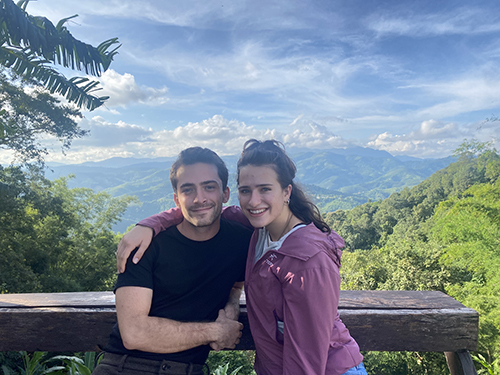
Along the Mekong River, we talked with fishers about their closeness with the river and their aquatic neighbors, met inspiring environmental activists opposing disruptive economic and environmental policies, and worked with hydrologists researching the effects of damming on seasonal flood patterns. New people, places and possibilities quickly surfaced, precluding any attempts to make or stick to a plan.
Traveling without a plan felt terrific at times. However, Audrey and I had both intended to write Honors Theses based on fieldwork completed during the trip, and we increasingly thought we weren’t really doing research. At least, not the disciplined, impactful and seemingly replicable research described in the papers, books and articles we’d read throughout college. We struggled to find focused and novel paper topics or procure what most people would consider meaningful data. Often, we couldn’t bring ourselves to write for the exhaustion and homesickness following our busy days. The specters of the papers we knew we should be writing haunted the trip.
Outside of study design problems, new realizations paralyzed me. What does it mean to travel to another region and treat its people as research topics? Was my work ever going to benefit or even mean something to the people living the experiences that intrigued me? Why did I deserve to ask them to share their stories with me if I didn’t even know why I needed to hear them? These thoughts congested my mind whenever I attempted to intentionally deploy ethnographic methods, only clearing when I was too caught up laughing, eating, listening or just being with my new friends to think of them as objects of inquiry.
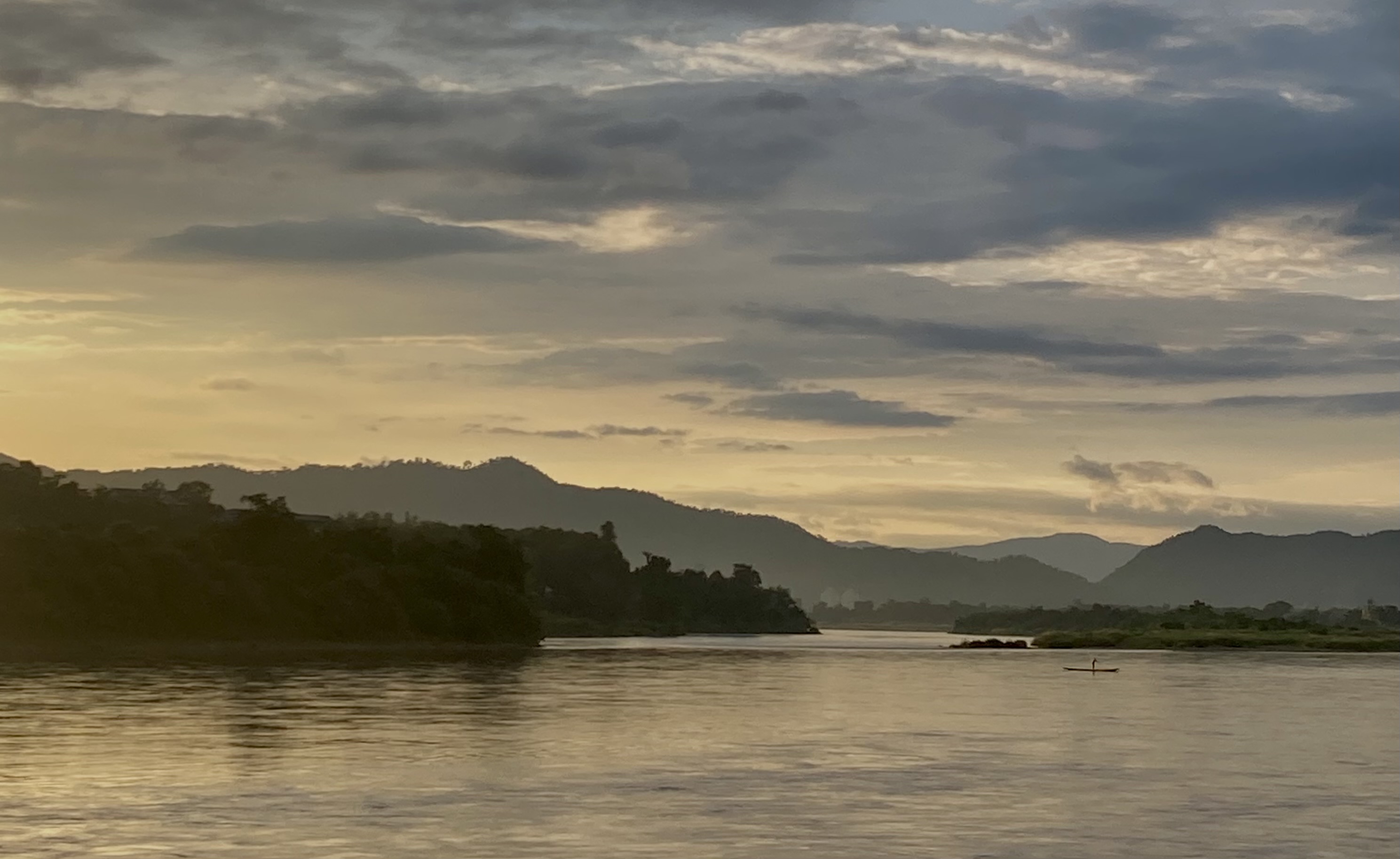
Studying abroad or seeking out the field is a complex act; we are not owed these experiences. We must ask for them graciously, for the right reasons, and accept that those best intentions might still be contested by what we learn.
For students pursuing similar kinds of work and learning abroad: Take the leap, but be prepared to exist without an itinerary. Try to see unplanned shifts as opportunities, and try as hard as possible to see the experience as a period of living rather than studying. Commit to humility. Expect to have the new language, grammar and pronunciation you practiced so hard ruthlessly mocked. Laugh along. Treat the time as time together, not something to be transmuted into credit hours or a publication.
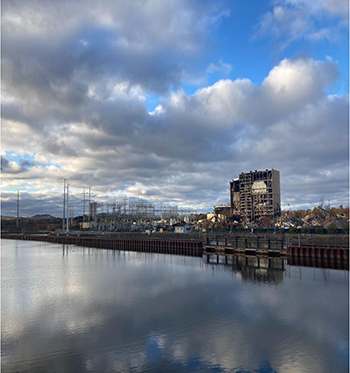
The essay that eventually coalesced from my research in Thailand considers how cultures and ecosystems co-create each other, how capitalism and its associated physical, cultural and administrative infrastructure affect this intersubjective process, and how those experiencing these changes imagine their futures while contending with what used to be. It compares these phenomena in Thailand with similar themes in my home, the Upper Peninsula.
How can I justify such a comparative analysis between two distinct locales? The answer lies in the methodological discomfort I encountered while abroad. That feeling followed me back to my snowy home, forcing me to consider why I felt I was still demanding something unfair of the place and its people.
With guidance from Dr. Flaim, Dr. Intralawan and others, I began to draw lines between my experience in both places; living in or visiting a landscape continuously defined by ecological destruction for the sake of capital gains makes it difficult to live well with one's neighbors, be they human, tree or lake. Exploring that theme continues to define my work after Madison. I firmly believe I’ve started to grow closer to my home and contribute to its healing because of living as a visitor in Northern Thailand. For that and everything else, I am immensely grateful.
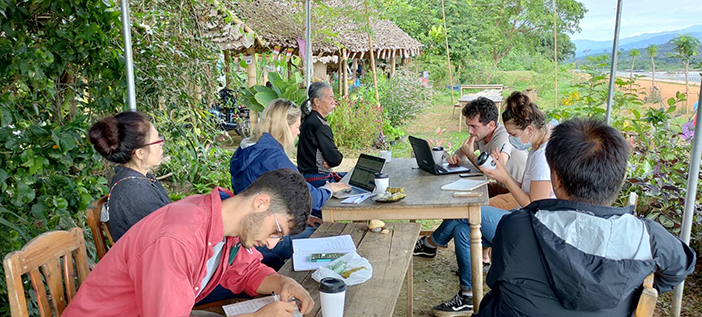
An MCW Meeting on the Mekong: Audrey and I discuss Mekong Culture Well Projects with Dr. Amanda Flaim, Dr. Apisom Intralawan, Dr. Wisa Fink, Leo Baldiga and Niwat Roykaew at the Rak Chiang Khong NGO’s riverside headquarters.
Photos provided by Solomon Kronberg.
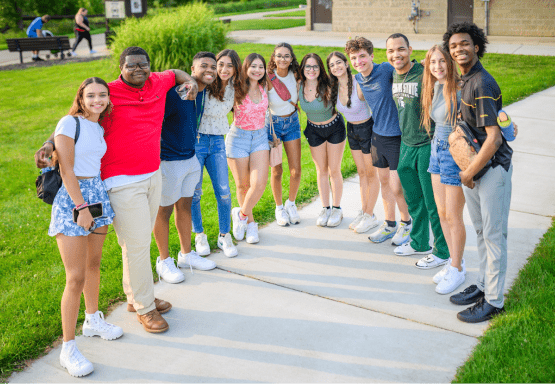
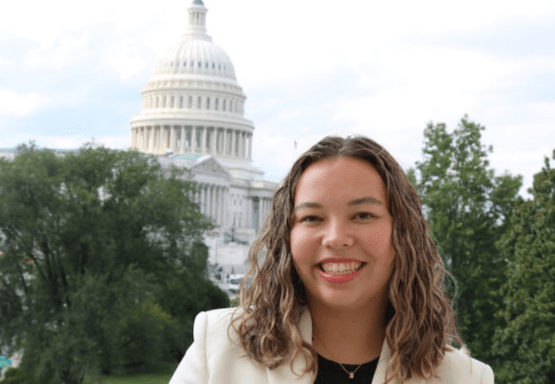
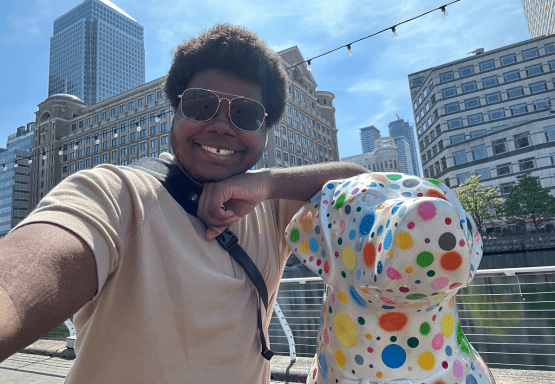
.png?h=384&iar=0&w=555)
